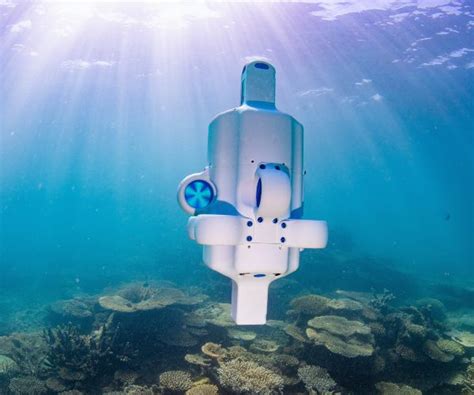The world's oceans are a vast and mysterious frontier, covering over 70% of our planet's surface. For centuries, humans have been fascinated by the ocean's secrets, from the deepest trenches to the coral reefs teeming with life. However, exploring this alien world has always been a challenging and often expensive endeavor. Recently, a groundbreaking technology has emerged to change the game: marine polymer tech.
This innovative field combines advanced materials science with oceanography to create novel solutions for ocean exploration. Marine polymers are specially designed materials that can withstand the harsh conditions of the ocean, from extreme pressure to corrosive saltwater. By leveraging these materials, scientists and engineers are developing new tools and instruments that can help us better understand and explore our oceans.
Revolutionizing Ocean Exploration
The potential of marine polymer tech is vast. Imagine being able to deploy underwater sensors that can collect data on ocean currents, temperature, and chemistry for years on end without needing to be replaced. Or picture a submersible vessel made from lightweight yet incredibly strong polymers that can dive to the deepest parts of the ocean without being crushed by the pressure.

One of the most significant advantages of marine polymer tech is its ability to reduce the cost and environmental impact of ocean exploration. Traditional methods often rely on heavy, metal-based equipment that can harm marine life and damage ecosystems. In contrast, marine polymers are biodegradable and non-toxic, making them a much more sustainable option.
Advantages of Marine Polymer Tech
So, what makes marine polymer tech so revolutionary? Here are just a few of the advantages of this cutting-edge technology:
- Durability: Marine polymers can withstand the harsh conditions of the ocean, including extreme pressure, temperature fluctuations, and corrosive saltwater.
- Sustainability: Marine polymers are biodegradable and non-toxic, reducing the environmental impact of ocean exploration.
- Lightweight: Marine polymers are often significantly lighter than traditional materials, making them ideal for use in submersible vessels and underwater equipment.
- Cost-effective: Marine polymer tech can reduce the cost of ocean exploration by minimizing the need for heavy, metal-based equipment.
Applications of Marine Polymer Tech
The applications of marine polymer tech are diverse and far-reaching. Here are just a few examples of how this technology is being used to revolutionize ocean exploration:
- Underwater Sensors: Marine polymers are being used to develop underwater sensors that can collect data on ocean currents, temperature, and chemistry.
- Submersible Vessels: Marine polymers are being used to build lightweight yet incredibly strong submersible vessels that can dive to the deepest parts of the ocean.
- Ocean Cleanup: Marine polymers are being used to develop systems for cleaning up plastic waste in the ocean.

Real-World Examples of Marine Polymer Tech
Here are just a few real-world examples of how marine polymer tech is being used to revolutionize ocean exploration:
- The Ocean Cleanup Project: This ambitious project aims to rid the world's oceans of plastic waste using a system made from marine polymers.
- The Deepsea Challenger: This submersible vessel, made from lightweight yet incredibly strong marine polymers, successfully reached the deepest part of the ocean in 2012.
The Future of Ocean Exploration
As marine polymer tech continues to advance, we can expect to see even more innovative solutions for ocean exploration. From autonomous underwater vehicles to advanced ocean sensors, the possibilities are endless.

Challenges and Opportunities
While marine polymer tech holds great promise, there are still challenges to be overcome. One of the biggest challenges is developing materials that can withstand the extreme conditions of the ocean for extended periods. However, as researchers continue to push the boundaries of what is possible with marine polymers, we can expect to see even more innovative solutions emerge.






What is marine polymer tech?
+Marine polymer tech is a field of research that combines advanced materials science with oceanography to create novel solutions for ocean exploration.
What are the advantages of marine polymer tech?
+Marine polymer tech has several advantages, including durability, sustainability, lightweight, and cost-effectiveness.
What are some real-world examples of marine polymer tech?
+Some real-world examples of marine polymer tech include the Ocean Cleanup Project and the Deepsea Challenger.
As we continue to explore the vast expanse of our oceans, marine polymer tech is poised to play an increasingly important role. With its potential to revolutionize ocean exploration, this cutting-edge technology is an exciting development that holds great promise for the future of our planet.
